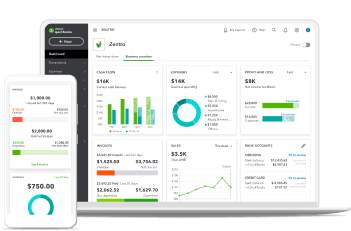Assessing the creditworthiness of other businesses
It’s not just about understanding your own business credit score, but it’s also essential to assess the creditworthiness of other businesses. This will allow you to mitigate any risks when working with clients and partners, helping to avoid issues with late payments and defaults.
Interpreting credit scores
First, you need to know how to interpret different credit scores. Agencies will use varying credit score models—some may use a 0-100 range for their ratings, others may use 0-1000.
Higher is always better. A poor credit score usually sits within the lower quartile of whatever metrics are being used. Most credit agencies use a color-coded system to indicate different levels of good, moderate, and bad.
Setting payment terms based on credit risk
If the company you’re working with has a more moderate or lower credit score, you don’t have to write them off completely. We’d suggest adjusting payment terms based on the risk.
For example, you may ask for a deposit prior to an agreement, offer shorter payment periods, or higher interest rates. This will enable you to safeguard your cash flow.






